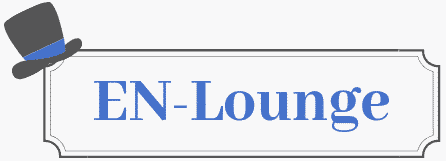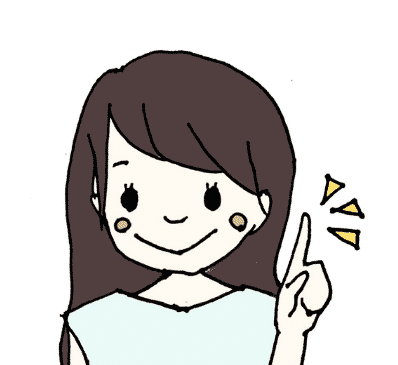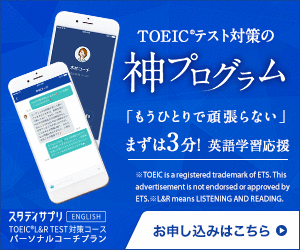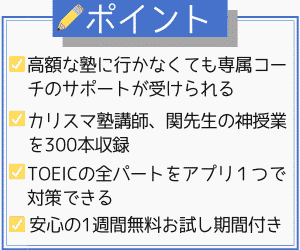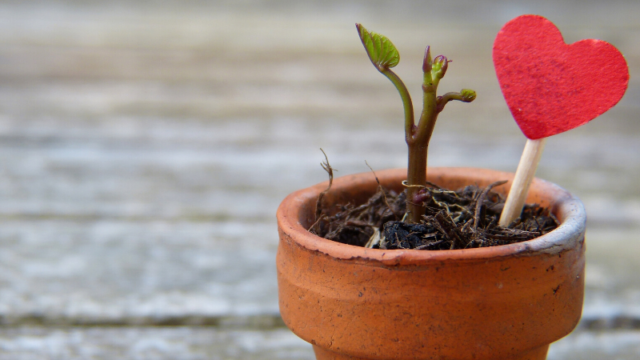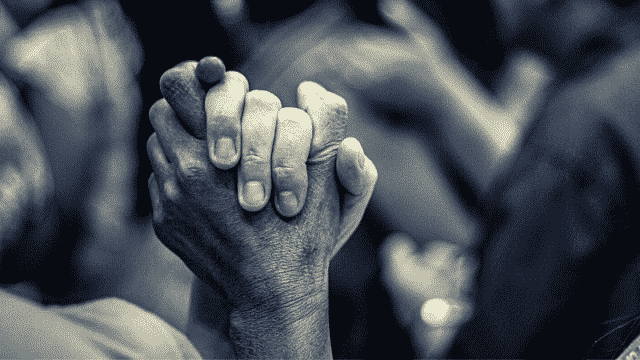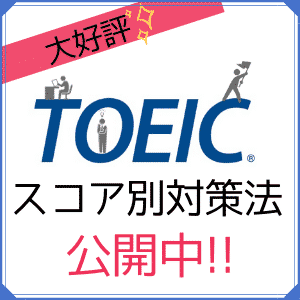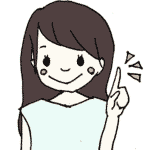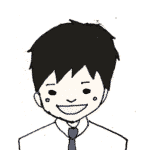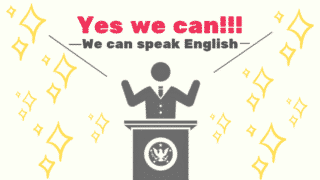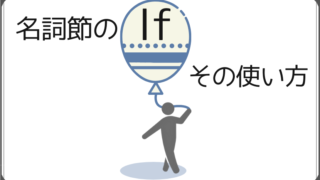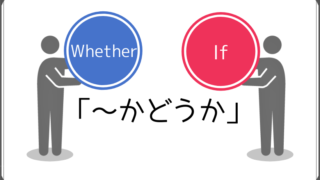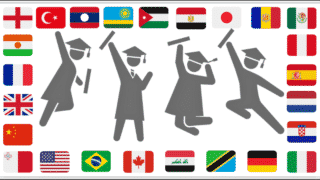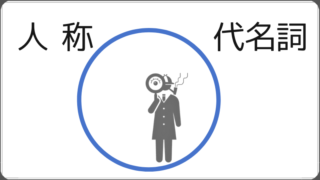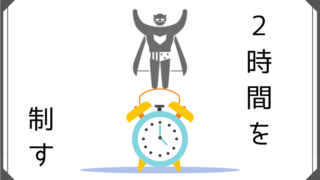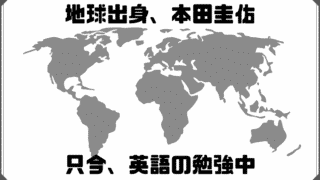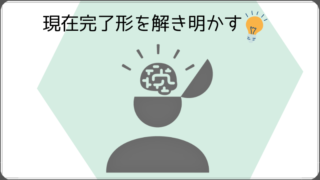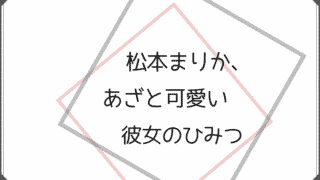海外での、ミニマリストとしての考え方に関する記事を翻訳しました!
身の回りのものを少なくしてシンプルな生活を送るミニマリストは日本でも今話題ですよね。
今回は、ミニマリストとはどのような考えに基づいて行動していくのが良いのか、という内容の英語記事を翻訳しました。
簡単に実践できそうなアドバイスもあるので、チェックしてみてください^^
▼参考文献▼
http://www.productivity501.com/minimal-minimalism/8469/
Minimal Minimalism:最小限のミニマリスト

筆者: Mark Shead Leave a Comment
Minimalism means very different things to different people.
What someone living in downtown LA considers a minimalistic existence is probably very different from what someone who lives a nomadic life on the plains of Africa would consider minimalistic.
What I want to talk about here is a type of minimal minimalism.
The goal isn’t to get rid of all of your stuff or get down to only 100 possessions.
Minimal minimalism is about recognizing that most things cost much more than simply their purchase price and very few things are actually “free” when all factors are considered.
ミニマリズムは、人によって非常に異なる意味を持ちます。
ロサンゼルスのダウンタウンに住む人が考えるミニマリスト的な存在とは、多分アフリカの平野で遊牧生活を送る人々が考えるミニマリスト的な生活とはずいぶん違うはずです。
私がここで、ひとつのミニマリストのタイプについてお話したいと思います。
目的は、あなたの所持品を全て無くしたり、所持品の数を100まで減らすということではありません。
ミニマリストは、「ほとんどのものは実際に購入したときに支払った金額よりも高くつき、すべての側面を考慮に入れた時に本当に無料であるものは本当に少ない」ということを認識することなのです。
When you upgrade your cell phone, there is a cost in time.
You have to move your contacts over, learn the new features, and you also have to go down to the cell phone store to pick it up.
The new phone may or may not be worth this cost in time.
The idea of minimal minimalism isn’t to necessarily get rid of your phone, it is about recognizing that the stuff you own also owns you.
When you buy something new, you are making a commitment in time to that item.
In many cases, you are sacrificing a portion of your life to that item.
You must make sure that the cost of the new item is worth the cost in both money and time.
あなたが携帯をアップグレードするとき、結局はコスト(労力や費用)が発生します。
あなたは連絡先を移動させなければならず、新しい製品の機能を学ばなければならず、更にあなたは携帯ショップに新しい携帯をとりにいかなければなりません。
新しい携帯はこれらの”コスト”を発生させてまで手に入れる価値があるものなのかもしれないし、そうではないかもしれません。
ミニマリストの考え方は、必ずしも「携帯を無くそう」というものではありません。
あなたが所持しているものは、反対にあなたを所持している(支配している)ということを認識することなのです。
あなたが新しい製品に忙しくしている時、あなたはその商品に対して全力で取り組みます。
多くの場合、あなたはあなたの人生の一部をその製品のために犠牲にしています。
あなたは、新製品に対してかかる”コスト”が「料金」と「時間」両方をかける価値があるものなのかハッキリさせなければなりません。
What do you really need?:本当に必要なものは何?

At least in the US, there tends to be a big overlap and blurred lines between our needs and our wants.
I am amazed at how many people in low-income housing who are surviving off of welfare can afford cable television, new toys, and cell phones.
You’d think that if you are unable to provide for yourself, you’d only be able to purchase the bare necessities of food, clothing, and shelter.
Our idea of poverty in the US is well above what is considered rich in other parts of the world.
少なくともアメリカでは、私たちの「必要なもの」と「欲しいもの」の境界線は重なり合ってぼんやりとしている。
私は、生活保護で生活している低所得者向けの住宅に死んでいる人々がケーブルテレビや新しいおもちゃ、携帯電話を買う余裕があることに驚きます。
もし、自分自身のために備えることができないのであれば、生活必需品である食べ物や服、雨風をしのげる場所しか購入できないと思うのではないでしょうか。
アメリカで私たちが「貧困」と考えるものは、世界中にある他の国の「裕福だ」と考えられているものよりずっと高い水準です。
It is hard to decide exactly what is a need and what is a want.
I don’t think people who are living off my tax dollars should be able to afford cable television, but I’m sure there are people out there who would argue that it is a basic right.
I’m sure there are things that I consider basic needs that are really frivolous compared with the way other people survive.
何が「必要なもの」で、何が「欲しいもの」なのかを厳密に決めるのは難しいことです。
私は、私の税金で生活している人々がケーブルテレビを利用できるべきだとは思いませんが、「それは基本的な権利だ」と主張する人がいることもまた確かです。
私が生きていくために「必要だ」と思うものが、他の人が生き残るためにはくだらないものとなる場合もあるということも分かっています。
Deciding what you need means deciding what type of lifestyle you want in order to support your other goals.
For example, our ideal lifestyle involves having a lot of people at our house.
In our previous house, it was rare that we didn’t have at least one other person living with us.
It wasn’t too uncommon to have 5 to 15 people spending the night for a few days.
あなたに必要なものを決めるということは、あなたの目標を支えるためにどんな生活を送りたいかを決めることを意味します。
例えば、私たちの家でたくさんの人が関わって生活するのが私たちの理想の生活だとします。
私たちの以前の家では、私たちの他に少なくとも誰か一人でも一緒に生活していないということはまれでした。
5人や15人の人が何日間か泊まりに来ることは珍しいことではありませんでした。
This type of hospitality is a core part of who we are.
It is part of our lifestyle–part of who we want to be.
We need things that help us support this lifestyle–not for basic survival, but because it is part of our values.
We tend to buy things that help support these values.
For example, we “need” more towels, beds, wash cloths, bathrooms and square footage than most people.
The house we are living in now has five bedrooms.
On one hand, that seems frivolous–who needs five bedrooms?
On the other, it is a reflection of our values and what is important to us in life–not to just have a big house, but to be able to have people staying in our home.
これらのおもてなしは、私たちが、私たちであるための核の部分です。
それは私たちの生活、私たちがどのような人でありたいかという部分なのです。
私たちは、最低限生き残るためでなく、この生活を支えるために物が必要です。
しかしそれは、私たちが価値を見出しているものの一部だからなのです。
私たちは、こういった価値を支えるために物を買う傾向にあります。
例えば私たちは、もっと多くのタオルやベッドや手ぬぐいやトイレ、多くの人達が所有しているよりも広い敷地が”必要”です。
私たちが住んでいる家は、今5つのベッドルームがあります。
「5つのベッドルームなんてくだらない」と感じるかもしれません。
でも、これは私たちの人生で大切なもの、「価値」を反映しているものなのです。
その「価値」は大きな家を持つということではありません。
たくさんの人が私たちの家で過ごすことができるということです。
What can you do without?:何が無くても過ごせる?

Deciding what you need is really about deciding what you can do without.
When it comes to the concept of Minimal Minimalism this often means deciding what things are not cost effective.
Let say you are looking at getting a swimming pool that you will enjoy swimming in for 3 hours per week but requires 5 hours of maintenance each week.
Because it will cost you so much in time in addition to the purchase cost, that is probably something you can do without.
あなたに必要なものを決めるということは、無くても過ごせるものを決めるということです。
ミニマリストのコンセプトに関して言えば、それは、何が費用対効果が低いのかを決めることを意味します。
あなたが週に3時間楽しむためにプールを持つことを考えているとします。
でも、そのプールを維持するのに毎週5時間かかるのです。
そのものが、購入費用に加えて時間もとても多く使わなければならないのであれば、それは多分、「無しでもやっていけるもの」です。
What is cost effective and important for you, may not be for someone else and vice versa.
Having a piano in the house is very important to me.
I play the piano and plan to teach my kids how to play.
A good piano is not inexpensive; they take up quite a bit of space and are extremely inconvenient to move around.
Still, it is worth it for our family, but that doesn’t mean a piano would make sense for someone else.
費用対効果が良く、あなたにとって大切なものは、他の人にとってはそうでないかもしれませんし、その逆もまた然り、です。
私にとって家にピアノがあることはとても重要なことです。
私はピアノを演奏し、子供たちに演奏の仕方を教えようと計画しています。
良いピアノは安くありません。
それは、場所を取りますし、動かすのにもとても不便です。
それでも、私たち家族にとってそれは価値のあるものです。
しかし、他の人がその思いに納得するというわけではありません。
Books are another thing we’ve put a lot of time, money and space into.
On the other hand, we don’t have a Wii, XBox or PS3.
Playing games isn’t something that we have really invested in as valuable.
Recently I found a computer game that the family can play together because I wanted my kids to get a little bit of experience in controlling objects in a 3D environment and some of the spatial reasoning that goes along with that.
However, we probably only average 20 minutes a week or so playing it.
I’m not putting down playing games; I’m just saying that for us personally, it hasn’t ever been an important part of our lifestyle.
本は、私たちがたくさんの時間とお金をつぎ込み、場所を確保するもう一つのものです。
一方で、私たちはWiiやXbox、PS3を持っていません。
ゲームをすることに対して私たちは、価値あるものとして投資してきませんでした。
最近、私は家族で一緒にできるテレビゲームを見つけました。
なぜなら私は子供たちに少し3D環境で物事を制御する体験をしてほしかったですし、そのゲームについてくるいくつかの空間推理も体験してほしかったからです。
しかしながら、私たちは多分1週間に平均20分程度しかそういったゲームをしません。
私はゲームすることをけなしているわけではありません。
私たちにとっては、個人的に、それは私たちの人生において大切なものではないということをただ言っているだけです。
Remember, it isn’t about just trying to get rid of stuff.
Your focus needs to be on having the right things, but not wasting time, money, and space on things that aren’t right for you.
It is all about understanding the true cost of every item and making sure that the benefits outweigh the cost.
覚えておいてください。
物をただ無くせばいいということではありません。
正しいものを持ち、あなたにとって正しくないもののために時間とお金と場所を無駄にしないということに集中する必要があります。
要するに、すべての品物の本当の”コスト”を理解することと、”コスト”に勝る”利益”があることを明確にするということです。
Re-use and Longevity:再利用と長く利用すること

It was many years before we purchased a brand new automobile.
Most of the furniture in our house is not new to us.
Our dining room table was something my grandfather made in a shop class and our kitchen table was something used by my great grandmother.
There is a lot to be said for using things that already exist instead of buying something new.
However, this comes with some interesting problems.
私たちは何年も前に最新の自動車を買いました。
私たちの家にあるほとんどの家具は、新しいものではありません。
私たちのダイニングルームのテーブルは祖父がお店のクラスで作ったものだし、キッチンテーブルは曾祖母が使っていたものです。
新しいものを買うより、既にあるものを使うことの利点はたくさんあります。
しかし、面白い問題が起こることもあります。
First, when you buy something used, it is often cheaper and this makes it harder to understand the full cost.
If you are thinking of getting a piece of exercise equipment that normally sells for $2,000, but you can get it used for $500, it sounds like a great deal.
However, the lower cost can make you underestimate how much time will be involved in picking it up and trying to move it into your house.
1つめは、中古品を買う場合それは安くなっていることが多く全体の費用を知ることが困難です。
もし、普通なら2,000ドルで売っている運動器具を買おうとしている時に、中古品を500ドルで買えるとなったら、それはとてもいい取引の様に思います。
Second, if you are so focused on buying used, you can miss out on situations where used is more expensive.
For example, when I was buying a riding lawnmower, I found a used one for about half the price of a new one.
A few years later I realized that given the expected life of that mower and the number of hours on it, the cost per hour of usage was about the same as if I had bought it new.
2つ目は、もしあなたが中古品を買うことにとても集中していると、中古品がより高価になってしまうという状況を見逃してしまう可能性があります。
例えば、私が乗れるタイプの芝刈り機を購入しようとしていたとき、中古品は新しいものの半分の値段だと気づきました。
数年後、予想していた芝刈り機の寿命と、その芝刈り機にかけた時間、つまり使用時間に対する費用は、新しい芝刈り機を買っていた場合と等しいと気が付きました。
(新品の半分の値段で買ったが、結局芝刈り機の寿命が短かったため、使用期間を考えると新品のものを買ったのと変わらなかったということ。)
Third, if you like to take care of your stuff, you may find yourself fixing something beyond when you should continue to be investing in it.
We had a VW Passat that kept running for a long time by putting in additional repairs every year.
I didn’t want to buy a new car because I knew I could keep the VW running.
Finally, a wreck forced us to get another vehicle.
After looking carefully at the prices of new vs. used low mileage, we found it was cheaper to purchase a new vehicle.
Since we do a lot of long distance driving, the new vehicle provided significantly better peace of mind and dramatically increased our chances of reaching our destination without car trouble.
In retrospect, we probably would have been better off to sell or trade in the VW much sooner.
3つ目は、もしあなたが何かを手入れするのが好きだったら、修理をするためにそのものにお金をかけ続けなければならないことに気づくでしょう。
私たちは、毎年追加の修理をすることで長く走り続けるフォルクスワーゲンのPassatを持っていました。
最終的にそれは大破し、他の車を買わなければならなくなりました。
新車と、走行距離の少ない中古車の価格を注意深く吟味した後、安い買い物なのは新車であると判断しました。
なぜなら、私たちは長距離移動を良くするのですが、新しい車はとても乗り心地が良く、トラブル無しで目的地まで到達することが劇的に増えました。
振り返ってみると、多分私たちはもっと早くフォルクスワーゲンを売るか交換するべきでした。
Fourth, not everything is economical to repair. I really like the idea of getting a good pair of dress shoes and just having them repaired.
But so far, the cost of resoling has always been high enough that I’ve been better off simply replacing the shoes.
4つ目は、全てのものを修理することが経済的ではないということです。
私は良い革靴をもち、それを修理しながら使うという考え方がとても好きです。
しかしこれまでのところ、靴底を張り替える費用はいつも、単純に靴を買い替えたほうが良いほどに高いのです。
Fifth, if much of your stuff has sentimental value, it can be much harder to get rid of when you don’t need it.
I wonder how many families have those old sewing machines that belonged to a grandparent that no one is ever going to use and doesn’t even function very well as a piece of furniture taking up space in their house.
5つ目は、もしあなたの持っているもののほとんどが感情的な価値を持っているのなら、あなたが必要なくなった時にそれらを処分するのがより難しくなります。
いったいどれだけの家族が、誰も使おうとせず、うまく機能することすら無く、家の中で場所を取る家具の一部となってしまっている祖父母が持っていたミシンを持っているでしょうか。
Reusing stuff, keeping it for a long time, and buying used things can all be good ways to stay simple, but you have to make sure you are being holistic in your approach.
Otherwise, you can make poor decisions by focusing on one area without seeing the value and cost in context.
再利用のものは、長く使い続けられるし、中古品を買うことはシンプルでいるための良い方法ですが、あなたの取り組みの中であなたは全体的にものを見られていることを確認する必要があります。
そうでないと、1つのことに集中してしまい、すぐには目に見えない価値や費用を見ずに不十分な決断を下してしまうからです。
Getting Rid of Stuff You Don’t Need:あなたに必要のないものを処分しよう

For most people, this is a struggle.
If you were raised to be frugal, it may be hard to get rid of stuff because you might need it in the future.
I grew up on a farm.
It is hard for me to get rid of old T-shirts because I’m always thinking that I may need one the next time we have to paint the barn, burn off the field, or do something else that tends to destroy clothing.
ほとんどの人にとって、物を処分することに苦労します。
もしあなたが倹約化に育てられたなら、将来必要になるかもしれないから…と物を処分することを難しく感じるでしょう。
私は農場で育ちました。
私にとって、Tシャツを処分することは難しいことでした。
なぜなら私はいつも、納屋を塗る時、野焼きをするとき、または服が破けてしまうかもしれない何かをするときのために一つ替えが必要だと考えているからです。
Here are a few strategies that have helped me.
ここで、役に立った戦略をいくつかご紹介します。
Switch between keep-what-you-need and remove-what-you-don’t.
Taking everything out of your closet and only returning what you think you really need can be a good strategy, but sometimes it just doesn’t work very well because everything looks like something you need.
If you find yourself in that situation, turn it around and take out the things that you are 98% sure you can do without.
Switching around your approach can help you prioritize more clearly by evaluating things from the other direction.
Fill a box with stuff you don’t need anymore.
Alternatively set a goal for a number of things you are going to give away or recycle.
Setting some goal of a quantity (either volume or number) of things to get rid of can be a lot easier than trying to decide “yes” or “no” on each item you own.
If you are unsure, store it.
If you have items that you think you can get rid of but aren’t sure, box them up and put them in your garage or a closet with a note saying to take the box to Salvation Army after a year.
If you desperately need something in the next 12 months, it will be there. After that, it should be easier to get rid of because you’ve proven to yourself that you haven’t needed it for the last year.
Practice one-in-two-out.
When you are buying a new item, decide what two items it is going to replace.
You can use whatever numbers make the most sense for you, but when bringing new things into your house means selecting some things that leave you will create a good habit to work your way down to less stuff.
「必要なものを残す」という考え方から、「必要でないものを取り除く」という考え方に切り替えてみましょう。
クローゼットの中の服をすべて出して、あなたが本当に必要だと思うものだけを戻すというのは良い戦略になりえますが、時に全てのものがあなたに必要なものに見えてしまって、うまくいかないことがあります。
もしあなたがその状況に陥ってしまったら、考え方を変えて、98%の確率で無しでもやっていけるものを取り出しましょう。
やり方を変えることは、別の方向から物を評価することによって、あなたの優先順位をより明確にするのに役立ちます。
あなたにとって、もう必要でないもので箱を埋めましょう。
あるいは、あなたが人にあげたり、リサイクルする予定の物の数の目標を設定しましょう。
処分する物の数の目標を設定することは、あなたが持っているものに対して”イエス”、”ノー”の判断をするのをより簡単にします。
もしあなたが決めきれないなら、持っておきましょう。
もし、処分できそうだけど決めきれない…と思うものがあったら、箱詰めしてガレージやクローゼットに入れ、「1年後に中古品屋に持っていく箱」と書いておきましょう。
1つのものを入れたら、2つを出すということを実践しましょう。
1つのものを買う時、どの2つと交換するかを決めましょう。
数は、あなたが好きな数を選べばいいですが、何かを家に招き入れるときは、何かを手放すということを意味するようにしておくと、物を減らすのに役立つ良い習慣を作り上げることができます。
Being the Owner vs. Being Owned:所有者であることと、所有されること

Our relationship with our stuff is complex.
I’m not trying to convince you to give away everything just to keep your life simple or so you can say you are being minimalistic.
Yet there is value in recognizing that our stuff comes at a cost and we need to be intentional about balancing the value that possessions bring to our lives with the cost of ownership.
私たちの物との関係は複雑です。
あなたがシンプルな生活を送り続けるため、または、「私はミニマリストだ」ということができるようになるために、全てのものを誰かにあげるように説得するつもりはありません。
更に、物には”コスト”がかかるということを認識することに価値があり、私たちはその価値と、物を持つことが私たちの生活に”所有するコスト”をもたらすことに関して意識的になっておく必要があります。
【最後に】ミニマリストの考え方を生活に取り入れてみるとシンプルに生きられるかも!

いかがでしたか?
今回は、ミニマリストとしてどのような判断をしていくことが大切なのか、という英文の記事を翻訳しました。
生活に根差した内容だけに、使われている単語も日常で多く使うものが多かった印象です。
ミニマリスト的な考え方をして自分の買い物や所持品を見直してみると、もっとシンプルに快適に生活するヒントが見つかるかもしれませんね!
この文章内で出てきたわからない単語をピックアップしておくと日常会話で役立つと思います(^^)/
英語は1文が長くなる傾向があるので、あまりにも長い文は訳す時に2つや3つに分けて考えるのがおススメです👍
長文読解の他に、TOEICスコアアップを目指しているなら、コチラから目標スコアごとの対策法をチェックできます。
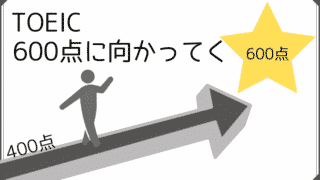
あなたの英語学習が楽しく進んでいくことを願っています(*´з`)
スタディサプリ TOEIC対策コースパーソナルコーチプラン
大手企業リクルートが、本気でTOEICのスコアアップを実現するために開発した「スタディサプリEnglish TOEIC対策 パーソナルコーチプラン」
「超充実コンテンツのアプリ×専属コーチのアドバイス」によって、240点のスコアアップを実現した人も!
サービス利用開始後の継続率が93%のパーソナルコーチプランを利用して、今度こそTOIECのスコアアップを達成させてみてはいかがでしょう?
1週間無料で専属コーチのサポートを体験できるので、本気でTOEICのスコアを上げたいならまずは自分に合うか試してみましょう!登録も1分足らずでできちゃいます👍
